第172章
It contained a few lines of writing, as follows: --`There seems much ground for the belief, that every sensory impression which has once been recognized by the perceptive consciousness, is registered (so to speak) in the brain, and may be reproduced at some subsequent time, although there may be no consciousness of its existence in the mind during the whole intermediate period.'
`Is that plain, so far?' asked Ezra Jennings.
`Perfectly plain.'
He pushed the open book across the table to me, and pointed to a passage marked by pencil lines.
`Now,' he said, `read that account of a case, which has -- as I believe -- a direct bearing on your own position, and on the experiment which Iam tempting you to try.Observe, Mr.Blake, before you begin, that I am now referring you to one of the greatest of English physiologists.The book in your hand is Doctor Elliotson's Human Physiology ; and the case which the doctor cites rests on the well-known authority of Mr.Combe.'
The passage pointed out to me was expressed in these terms: --`Dr.Abel informed me,' says Mr.Combe, `of an Irish porter to a warehouse, who forgot, when sober, what he had done when drunk; but, being drunk, again recollected the transactions of his former state of intoxication.
On one occasion, being drunk, he had lost a parcel of some value, and in his sober moments could give no account of it.Next time he was intoxicated, he recollected that he had left the parcel at a certain house, and there being no address on it, it had remained there safely, and was got on his calling for it.'
`Plain again?' asked Ezra Jennings.
`As plain as need be.'
He put back the slip of paper in its place, and closed the book.
`Are you satisfied that I have not spoken without good authority to support me?' he asked.`If not, I have only to go to those bookshelves and you have only to read the passages which I can point out to you.'
`I am quite satisfied,' I said, `without reading a word more.'
`In that case, we may return to your own personal interest in this matter.
I am bound to tell you that there is something to be said against the experiment as well as for it.If we could, this year, exactly reproduce, in your case, the conditions as they existed last year, it is physiologically certain that we should arrive at exactly the same result.But this -- there is no denying it -- is simply impossible.We can only hope to approximate to the conditions; and if we don't succeed in getting you nearly enough back to what you were, this venture of ours will fail.If we do succeed -- and I am myself hopeful of success -- you may at least so far repeat your proceedings on the birthday night, as to satisfy any reasonable person that you are guiltless, morally speaking, of the theft of the Diamond.
I believe, Mr.Blake, I have now stated the question, on both sides of it, as fairly as I can, within the limits that I have imposed on myself.
If there is anything that I have not made clear to you, tell me what it is -- and if I can enlighten you, I will.'
`All that you have explained to me,' I said, `I understand perfectly.
But I own I am puzzled on one point, which you have not made clear to me yet.'
`What is the point?'
`I don't understand the effect of the laudanum on me.I don't understand my walking downstairs, and along corridors, and my opening and shutting the drawers of a cabinet, and my going back again to my own room.All these are active proceedings.I thought the influence of opium was first to stupefy you, and then to send you to sleep.'
`The common error about opium, Mr.Blake! I am, at this moment, exerting my intelligence (such as it is) in your service, under the influence of a dose of laudanum, some ten times larger than the dose Mr.Candy administered to you.But don't trust to my authority -- even on a question which comes within my own personal experience.I anticipated the objection you have just made: and I have again provided myself with independent testimony which will carry its due weight with it in your own mind and in the minds of your friends.'
He handed me the second of the two books which he had by him on the table.
`There,' he said, `are the far-famed Confessions of an English Opium-Eater !
Take the book away with you, and read it.At the passage which I have marked, you will find that when De Quincey had committed what he calls "a debauch of opium," he either went to the gallery at the Opera to enjoy the music, or he wandered about the London markets on Saturday night, and interested himself in observing all the little shifts and bargainings of the poor in providing their Sunday's dinner.So much for the capacity of a man to occupy himself actively, and to move about from place to place under the influence of opium.'
`I am answered so far,' I said; `but I am not answered yet as to the effect produced by the opium on myself.'
`I will try to answer you in a few words,' said Ezra Jennings.`The action of opium is comprised, in the majority of cases, in two influences -- a stimulating influence first, and a sedative influence afterwards.